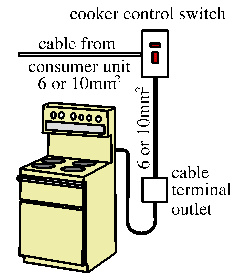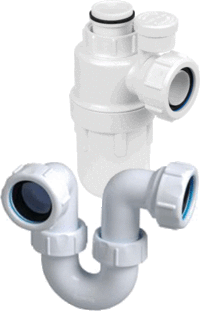Kitchen Services
From DT Online

- Electricity: there must be enough power points for the range of equipment to be used. They must also be well away from wet areas for safety reasons. A separate supply is needed for electric cookers. Any major electrical work carried out in a kitchen may need to be certificated by a qualified person to show that the work has been tested - check with local Building Control.
- [[Kitchen Lighting|Lighting:] a high level of illumination is required on work-surfaces together with good general lighting and, in the case of a combined kitchen/diner or open-plan arrangement, lighting to create a softer ambience for conversation and relaxation.
- Gas: this must be installed only by a Gas Safe registered plumber and certificated. The size of the supply pipe must not be smaller than the inlet connection to the appliance.

- Water: A supply of both hot and cold water will be needed for sinks and additional plumbing will be required for washing machines and dishwashers.
- Waste Disposal: all used water from washing, cooking etc. must be linked to drainage outlets and this can influence the placing of items within the kitchen. The disposal of solid waste needs some consideration and there should be free access to waste bins. Waste disposal units can be fitted if required.
Note: Most houses have two types of drainage: 'foul water' (e.g. toilets) and 'surface water' (e.g. rainwater from the roof). Kitchen sinks should be connected to the 'foul water' system because of the presence of vegetable waste.